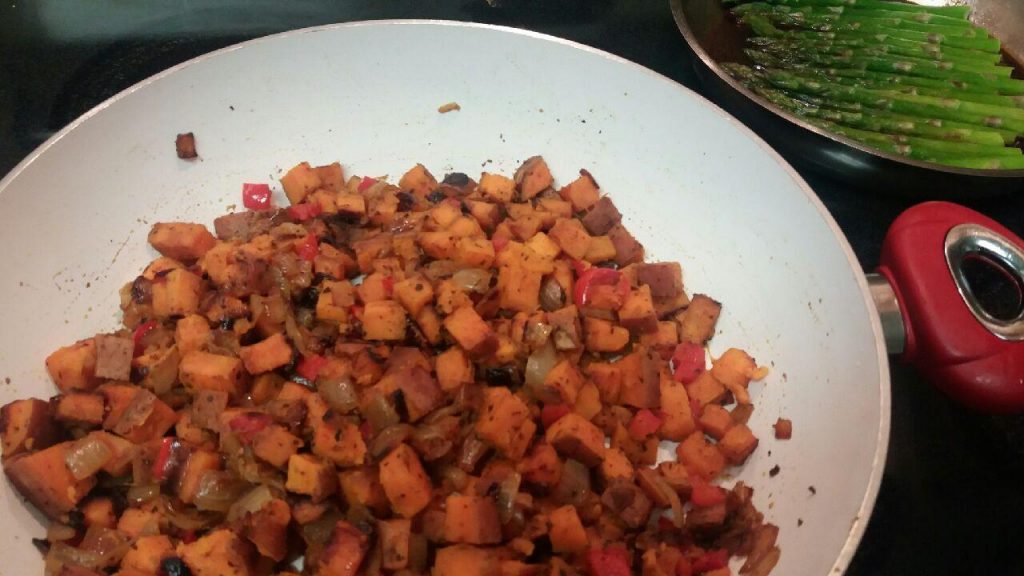Healthy Comfort Food

If you love sweet potatoes, I have good news for you, along with an  easy and oh-so-delicious Southern-style recipe!
easy and oh-so-delicious Southern-style recipe!
In case you’ve been following my blog and wonder why I cook with so many sweet potatoes, here’s one reason why: according to Ayurveda, sweet potatoes are one of the best foods for grounding vata — that light, airy, buzzing energy that you feel when life is moving just a little too fast.
The vata dosha is characterized by these qualities: dry, light, cold, rough, subtle, mobile, clear and astringent. When vata is too high, you may feel anxious or insecure, suffer from insomnia and indigestion, and experience tremors or twitching. You also may have cracking joints and sore muscles. High vata is often a contributor to other kinds of pain and many forms of chronic illness.
During the cold winter months, vata is naturally higher, and we’re naturally drawn to steaming hot soups, warm side dishes and some heavier foods to warm and ground our bodies. These warm, heavy foods can also calm a swirling and agitated mind. In vegetarian cuisine, sweet potatoes fit the bill perfectly because they are a little bit heavy but are still easy to digest.
Nutritionists laud sweet potatoes as good for everyone because they are loaded with vitamins and minerals. As important they consist of the “good carbs” for diabetics and people with insulin resistance who are making their best effort not to cross over the line into diabetes. If you do suffer with diabetes or insulin resistance, you’ll benefit by switching from white potatoes to sweet.
There are dozens of ways to make delicious sweet potatoes, and today I offer you one of my favorites — Sweet Potato Hash Browns.




